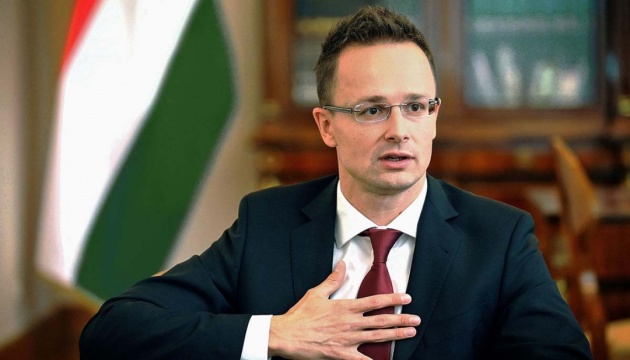
Budapest explains why it lifted veto on NATO ambassadors' statement on Ukraine
"The NATO member states and Ukraine adopted the Hungarian proposal with relation to the NATO-Ukraine joint statement at the very last moment, after the expiry of the official deadline. This means that our stand in support of Transcarpathian Hungarians has achieved results," Szijjarto told the MTI news agency.
According to a report posted on the website of the Hungarian Ministry of Foreign Affairs and Trade, Szijjarto said that Budapest's proposals have finally been taken into account and that the joint statement "now expresses support for the Hungarian community that has been stripped of its rights and calls on Ukraine to abide by international law and the requirements of international organizations."
At the same time, Szijjarto stressed that Hungary was striving to maintain good neighborly relations with Ukraine and was ready to begin consultations with the Ukrainian administration so as "to rebuild our previous good neighborly relations."
Szijjarto said at the Eurasia Forum in Budapest on October 30 that Hungary had vetoed a joint statement by NATO ambassadors on Ukraine, which was to be approved by the North Atlantic Council during a visit to Ukraine.
According to Szijjarto, the veto was imposed because several proposals from Budapest on the inclusion of a sentence to the joint statement have not been taken into account. In particular, it stated that "the Ukrainians must fulfill their obligations as set down by international law and international organizations."
Ukrainian President Volodymyr Zelensky said at a joint press conference with NATO Secretary General Jens Stoltenberg on October 31 that Ukraine had already implemented six of the seven recommendations of the Venice Commission regarding the introduction of amendments to the law on education in terms of the protection of national minorities.
Relations between Ukraine and Hungary became more complicated after the Verkhovna Rada voted in favor of the law on education. The law, approved at second reading and as a whole on September 5, 2017, came into force on September 28. According to the document, the use of the state language in school education has been expanded. Hungary expressed concern about the future of the Hungarian minority in Ukraine.
Since then, Budapest has been blocking NATO-Ukraine Commission meetings and stressed its readiness to oppose Ukraine's Euro-Atlantic integration until the law is amended.
op




